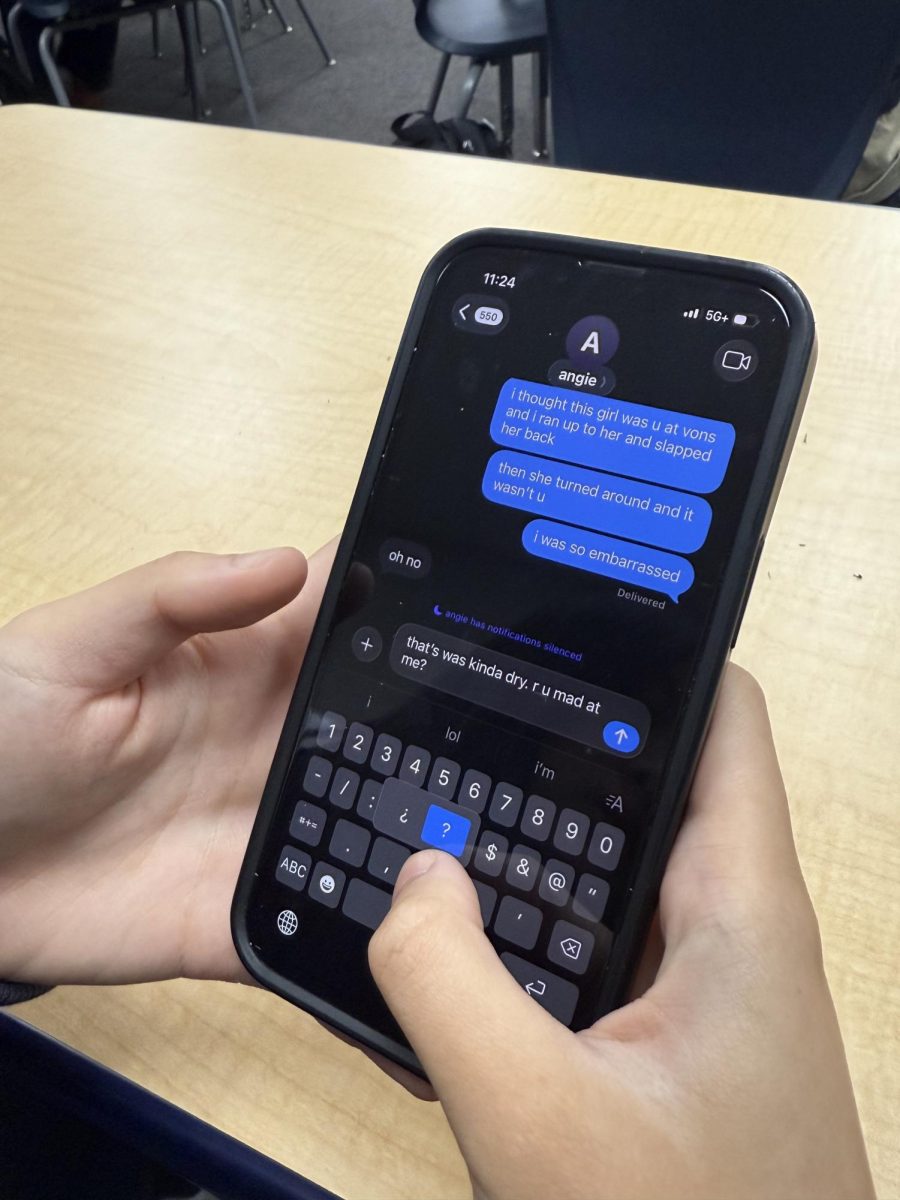It’s not rare that I find myself spending over thirty minutes trying to craft the perfect word choice and tone in my Google Chats to my teachers, overthinking on how to respond to a text message as dry as a desert such as “k” or occasionally having trouble figuring out the intentions or emotions behind my friends’ messages.
With the rise of instant communication through text, efficiency is greatly increased, but so is the room for misinterpretation as texting etiquette—expectations of what to and not to do over text— becomes more standardized. Whether it is greeting someone or expressing an opinion, I have to admit: texting can be very daunting.
Texts eliminate natural human communication, being able to hear the other’s tone or see their facial expressions, which is why I much prefer in-person interactions. It has come to be that abrupt periods or short expressions seem ominous or are anxiety-inducing, though more often than not, are not intended to be.
The term “dry texter” has been coined to target individuals who express less emotion through text, who most likely do not intend to. Their responses correlate to what we say in real life, however, what we see on our cellphone greatly differs from what we hear in person. At times, this can be frustrating; for instance, one time, I texted someone asking for an extensive list of requests, but their response was just “no,” which made me scared because I thought they were mad at me, having not provided any further reasoning.
However, it is also important to account for the fact that everyone has different texting styles. Sometimes, I can hear my friend’s voices through their texts so what appears to be dry now becomes the norm. Once you get to know a person more, I feel that rather than how a text looks, what is most important is the ideas and thoughts they are conveying.
Another aspect of texting that can leave people uneasy is leaving someone on “delivered” or “read”—the former meaning the sender did not open your message, and the latter meaning the sender read your message but decided to not respond. Especially given that devices are being utilized more than ever, being left on one of these statuses makes me question whether the person simply forgot, or is ignoring me out of spite. Most often, it is that they forgot, but otherwise, knowing someone isn’t busy and my texts are left ignored leaves me spiraling into overthinking and if purposeful, I feel it is greatly disrespectful to the sender.
Overall, I would say the best solution is to just match the energy of the person you are communicating with. Match your tone given the situation you are in, and always respond within an adequate amount of time to let the receiver rest assured. Most importantly, whenever it is possible, in-person interactions or video calls should be prioritized. For example, I am a huge fan of FaceTime and being able to feel like I’m with the other person though we are miles apart. After all, human connection should be built on genuine presence and shared moments, not just words on a screen.








